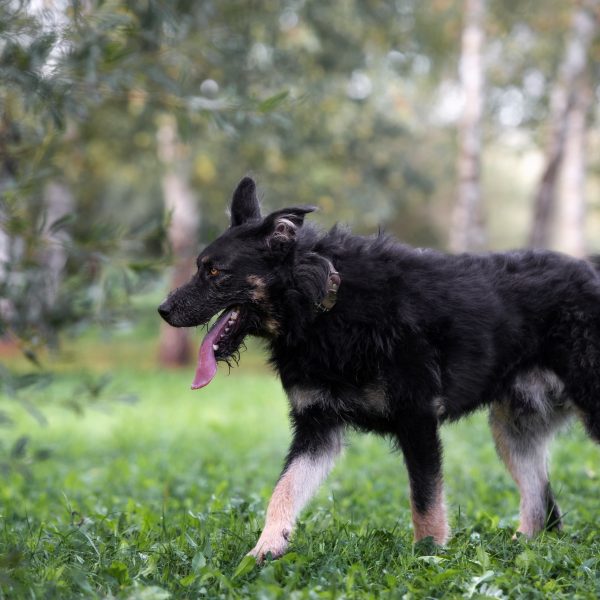Why Do Dogs Pace?

Dogs do a lot of things that we sometimes don’t understand. Sometimes, there is a logical reason for it, even if it doesn’t make sense from a human perspective. And, sometimes, it’s a sign that something is wrong. Understanding why dogs do certain things can help you determine what’s normal for your dog and what is a cause for concern. Pacing is one of these behaviors. So, why do dogs pace? Here are a few reasons your dog might be pacing:
1. They May Be Excited, Nervous, Anxious, or Agitated
Pacing can be a coping mechanism for your dog. They may be doing it as a self-soothing action in response to feeling nervous, anxious, or agitated. They also just might be excited and pacing is how they deal with that extra energy.
Is there something or someone outside your home? Is there something new happening that your dog is unsure about? Did you just come home from work? Is it close to mealtime?
Take note of your dog’s surroundings and of yourself too. Some dogs are in-tune with their owners and may react nervously, anxiously, or excited in response to the same feelings from you.
2. Your Dog May Want Attention
When your dog wants attention from you, they may go out of their way to try and get it. Pacing can be one of those things.
If your dog is not getting enough attention or mental stimulation, they may become bored and attempt to find their own entertainment. So, they may be pacing simply because it’s something entertaining to do.
Try calling your dog over for a cuddle session or take a break for some playtime. Think honestly about how much time you’ve been spending with your dog. If it’s been less than usual or just isn’t enough, try to set aside more time for them.
If this is the reason your dog is pacing, spending more time with them should stop it.
3. They May Need to Go to the Bathroom
Pacing is also a common behavior when a dog needs to go to the bathroom. If they have to go, they may pace near a door or pace from the door to you and back.
Pay attention to where your dog is pacing and try to take them out for a walk. You’ll know pretty quickly if they needed to go to the bathroom.
Even if they don’t end up needing to go, the pacing could be because they are restless and need to expend some energy. So, either way, a walk will do them some good.
If the pacing does not subside after some exercise and time together, consider visiting your vet.
4. It Could Be a Territorial Behavior
Another possible answer to the question “why do dogs pace?” could be that it is a territorial behavior that they have developed. Dogs that spend a lot of time in the yard, especially time unattended in the yard, can sometimes develop a habit of pacing. This can be prevalent in protective and territorial dog breeds, but is a behavior that can pop up in any dog breed.
Pacing can become a way of patrolling their space. They are essentially pacing along the boundary of their yard and establishing their territory. Limiting the amount of alone time your dog spends in the yard can help prevent and reduce this behavior.
5. There Could Be Something Wrong
As with almost any dog behavior, sometimes pacing can be an indication that something is wrong. The pacing could just be occurring because your dog feels uncomfortable and the pacing is how they are trying to find relief.
If they are in pain or discomfort, they may be feeling restless and the pacing is how they deal with it. But, when paired with other symptoms, it could also be a sign of liver disease, separation anxiety, Cushing’s disease, brain tumors, dementia, bloat, blindness or failing eyesight, or something worse.
In the case of pacing, you want to check for any other symptoms. Usually, if the pacing is due to a medical issue, there will be other symptoms present as well. Look for things like loss of appetite or thirst, discolored urine, sudden weight loss, whining, excessive thirst, excessive drooling, and other symptoms you should never ignore in your dog.
If you see any of these symptoms or if the pacing becomes a pervasive behavior, it’s important to visit the vet. They’ll be able to review symptoms with you, check out your dog, and help you figure out what might be going on and what to do next.
Dogs and humans speak different languages, so we often rely on behavioral cues to communicate. Knowing these reasons why your dog might be pacing does more than just give you the answer to “why do dogs pace?” – it also gives you the background you need to better understand your dog and figure out what might be triggering their behavior.
